Faculty | Graduate Students | Undergraduate Students | High School Students
Faculty
Dr. Vandana Janeja
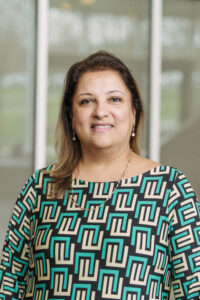
Dr. Vandana Janeja (PI) is Professor of Information Systems and Associate Dean for Research and Faculty Development in the College of Engineering and Information Technology at the University of Maryland Baltimore County (UMBC). She also holds the position of director of the NSF HDR Institute iHARP, which is devoted to employing data and model developments in the Polar Regions. She directs the Multi Data lab at UMBC and combines her data science research with important societal topics like climate change, data science ethics, disinformation detection, and security.
Along with Drs. Mallinson, Purushotham and Komlodi, She is leading the research team to develop novel AI algorithms and design training sessions to help listeners improve the ability to recognize audio deepfakes with varying degrees of linguistic complexity.
Dr. Christine Mallinson

Dr. Mallinson (Co-PI) is Professor of Language, Literacy, and Culture and Assistant Vice President for Research and Scholarly Impact at UMBC.
Dr. Mallinson’s interdisciplinary and collaborative research comprehensively examines language as a socially and culturally contextualized practice in order to address linguistic bias and misinformation and expand educational equity. Her work has provided key, concise information to educators about language variation in English and has contributed to theoretical models of how language is used by students.
She leads the identification of the expert defined linguistic features and how language is used by students in U.S. schools.
Dr. Sanjay Purushotham
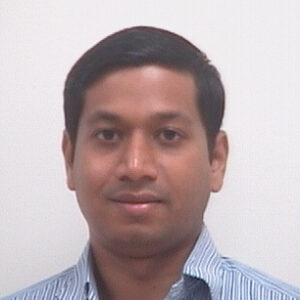
Sanjay Purushotham is an Assistant Professor in the Department of Information Systems at the University of Maryland Baltimore County (UMBC). His research interests are in machine learning, data mining, optimization theory, statistics, computer vision and its applications to biomedical informatics, social network analysis and multimedia data mining. Before joining UMBC, he was a Postdoctoral Scholar Research Associate in the Department of Computer Science and Integrated Media Systems Center (IMSC) at the University of Southern California (USC), where he was mentored by Prof. Yan Liu and Prof. Cyrus Shahabi. He obtained his PhD in Electrical Engineering from USC under the supervision of Prof. C.-C. Jay Kuo in the Media Communications Labs (MCL).
Dr. Anita Komlodi
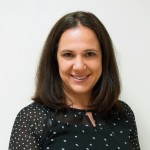
Dr. Anita Komlodi is an Associate Professor in the Department of Information Systems and Associate director at the Imaging Research Center at UMBC. Her research areas span the fields of Human-Computer Interaction and Human Information Behavior. She studies information behavior in various contexts and and designs user interaction with information-intensive applications. In her current projects she focuses on information behavior and literacy across cultures and collaborative information behaviors in virtual reality environments.
Graduate Students
Sara Khanjani

A third year PhD student at UMBC Information Systems department, Sara implemented some of the state-of-the-art AI-based audio deepfake detectors. Then, using linguistic data augmentation obtained from the linguists in the team, Sara achieved remarkable improvements in catching fake audios. Sara is currently working on automation of the linguistic data augmentation method for robust spoofed audio detection. She also investigates other data and model augmentation methods for Spoofed Audio Detection with the focus of Human in the loop Machine Learning.
Noshaba Nasir Bhalli

Noshaba is a PhD student at UMBC, Information Systems Department with research interests in data science and machine learning. Currently she is working on Deepfake project by auto annotating the fake audio files with human discernible features using machine learning algorithms.
Lavon Davis

Lavon Davis is a PhD student in the Language, Literacy, and Culture program at the University of Maryland Baltimore County and has been working professionally in higher education for 10 years. He currently serves as Graduate Research Assistant and an Adjunct Professor.
Lavon’s research interests and background are rooted in sociolinguistics and include gatekeeping/access, educational linguistics, linguistic profiling, raciolinguistics, interpersonal communication, and conversational interaction/style.
Within this project, Lavon has been working on scholarship, training, and research to deepen the perception of listeners for audio deepfakes.
Chloe Evered

Chloe Evered is a graduate student at Georgetown University, originally from Houston, Texas, studying linguistics with a minor in Chinese. For the summer of 2023, She joined the project as an undergraduate researcher on the linguistics side with Dr. Christine Mallinson and Lavon Davis. She listens to recordings of both fake and authentic audio to identify linguistic cues that distinguish deepfakes from real speech.
She is now developing a training program based on those cues that were identified with the aim of teaching people what to listen for when they encounter potentially fake audio online. She assists with evaluating the efficacy of this training program and further refining it and also with literature reviews and provides support to the rest of the team in writing about the project for publication in academic journals.
Lavanya Neelakandan
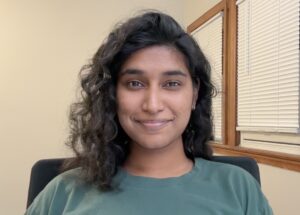
Lavanya Neelakandan is a graduate student in the Human-Centered Computing program at UMBC. Passionate about information accessibility, architecture, and visualization, she is currently working on optimizing the user experience throughout this project lifecycle. Her work includes conducting user research using qualitative and quantitative methods, analyzing research data, and usability testing to improve efficiency and accessibility of this community resource.
Pragya Pandit

Pragya Pandit is a graduate student at UMBC, pursuing an MS in Cybersecurity. She brings a unique blend of technical knowledge and design skills to the CISAAD project, where she creates visual representations of complex research findings. Pragya focuses on crafting infographics that make intricate data and technical concepts more accessible to a wider audience, playing a vital role in translating research into digestible formats.
In addition to her design work, she actively supports the project’s outreach efforts, ensuring that the visuals resonate with the team. Pragya collaborates closely with the research team to refine these materials and contribute to publications. Designing for CISAAD allows her to combine her technical interests with her hobby, making it a fulfilling part of her studies.
Undergraduate Students
Nehal Naqvi

Nehal Naqvi is a Statistics and Political Science undergraduate student at UMBC. He is also a Sondheim and Blaustein Public Affairs Scholar and is a part of the Honors College. He is a Data Science Scholar who is assisting as a part of the project.
He is performing the statistical/data analysis of the difference in deepfake recognition between pre and post survey groups.
Kiffy Nwosu

Kiffy (REU Summer 2023) is an incoming freshman at Rochester Institute of Technology, New York where she will be majoring in computer science. She started working at the lab as a high school intern and has transitioned to an undergraduate researcher under Dr. Janeja and Sara. As a high school intern, her work focused more on data cleaning and collection, trimming audio, sorting audio, creating and sorting paths, and visualizing data sets.
Currently, She works on the machine learning aspect of audio deep fakes. Specifically developing and testing out algorithms that visualize audio and motifs amongst real and fake audio. She is also involved in annotating and comparing audio outputs.
Whitney Fils-Aime
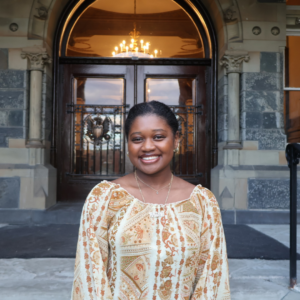
Whitney Fils-Aime is a senior at Georgetown University, majoring in Linguistics. She is interested in human speech error, backchanneling, and self-initiated self-repairs in conversation and is eager to see how these elements of discourse will be replicated by deepfakes. Whitney is joining the linguistics team to aid in spreading awareness about the dangers of deepfakes and share practical methods individuals can use to identify and protect themselves from such threats. Currently, she is focused on locating existing works that discuss media literacy and how to prevent falling for manipulated audio. She is also taking the lead on sourcing multilingual, multi-speaker, accessible datasets, and linguistics x AI related syllabi to include in an upcoming educational repository. This resource will be available for educators, students, researchers, and the general public to learn more about how they can detect deepfake audio.
Ashraf Kawooya

My name is Ashraf Kawooya, and I am a junior majoring in Computer Science at the University of Maryland, Baltimore County (UMBC). My primary focus areas are cyber security and software engineering, though I remain open to exploring other fields within computer science. I have a passion for coding and enjoy learning new programming languages.
Kavin Manivannan
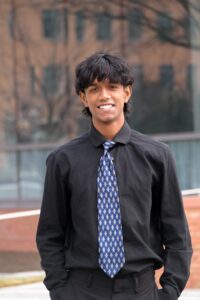
Hi, my name is Kavin Manivannan, and I am a rising sophomore majoring in Information Systems. As a Data Science Scholar, I’m working on the MData Lab’s project on Audio Deep Fake Discernment-Education. Audio deep fakes pose a cybersecurity threat as they can mimic human voices. l’m really passionate about data science, and I’m excited about using it to explore ways to mitigate harmful technologies
High School Students
Jackson Means
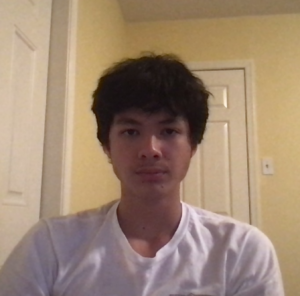
My name is Jackson Means, and I am a current senior at Mount Hebron High School. I am interested in data science and statistics, as well as their vast applications in all aspects of life. I am excited to be working on the CISAAD project and am looking forward to learning and working with the members.
Tai Akinlosotu

Hi, my name is Tai Akinlosotu, and I am a senior attending Mount Hebron High School. As a high school intern, I work under the guidance of Dr. Vandana Janeja, Sara Khanjani, and Kiffy Nwosu on the Audio Deepfake Project. As an intern, I’m researching the journalistic tools used in detecting audio deepfakes. In college, I plan on majoring in computer science, and with this opportunity I’m excited to diversify my skills and get an idea of what work in the computer science field looks like.
Infographics by Pragya Pandit
Website Design by Lavanya Neelakandan